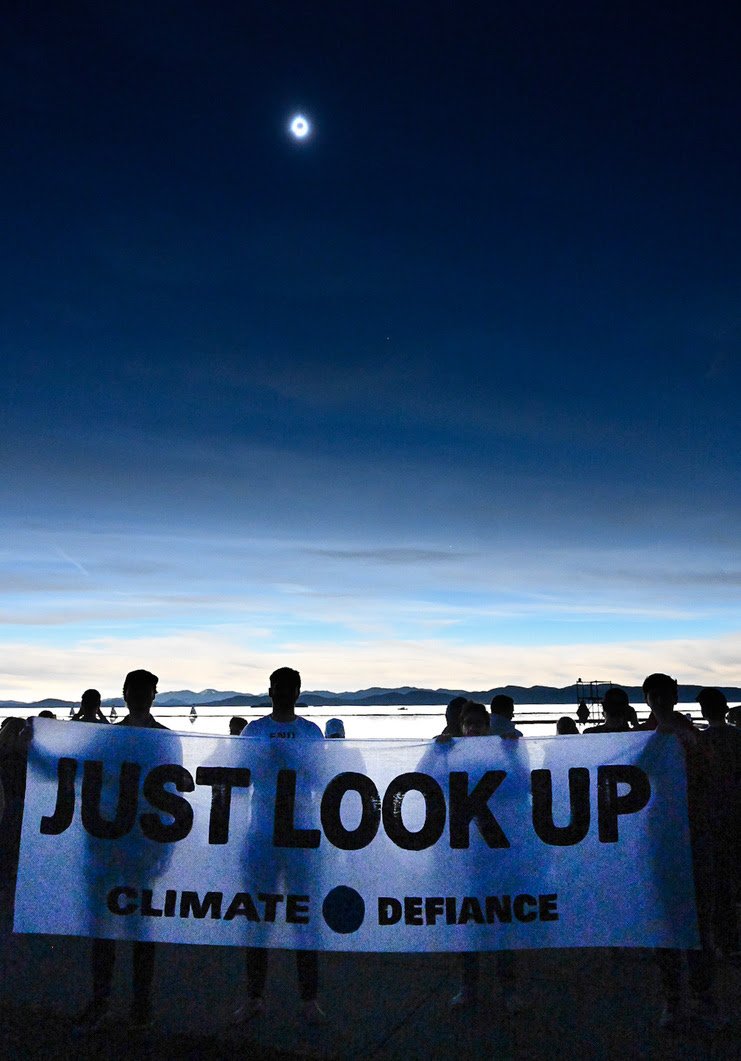Cornell on Fire Weekly 4/10
An eclipse message from Climate Defiance. Image credit: Climate Defiance.
Dear Cornell on Fire,
There may be nothing more tragic than the Western failure to understand that we are not on the Earth, we are Earth. This came into full view as the sun went out of view on April 8.
In a moving testament to Earth’s life-giving celestial dance, parts of North America entered into the path of eclipse on Tuesday. We were gifted to live along the path of near totality here in Ithaca, falling quiet with the rest of the natural world under the hushed darkness of luminous clouds.
Millions of people, however, did not feel gifted to be where they were. Instead, they traveled to greener pastures to grab the gift that was given elsewhere. Earth was a large empty space between their home and their eclipse destination, to be traveled as quickly and conveniently as possible. Indeed, Earth's spaciousness was critical to their plans: if their own travel pollution were confined to their personal space, it would kill them immediately. Instead, it was safely exported to the common skies where it will kill others more slowly.
And yes, it will kill. Eclipse tourists generated more emissions than every other major US event of the year, including Taylor Swift concerts, the Super Bowl, and major holiday travel. The estimated carbon pollution from air and car travel for 4 million people’s eclipse tourism totaled approximately 587,400 tons of CO2. That is roughly equal to one whole year of Cornell’s carbon-intensive “business as usual” (excluding Cornell’s conspicuously unreported emissions from student flight travel and investments).
This explosion of energy demand was in perfect asynchrony with our stated aspirations to a renewable future. As renewable solar power generation plummeted under darkened skies, we might logically have synchronized our energy use with the reduction of light. We did exactly the opposite.
Seeking the best personal position for eclipse viewing, we unnecessarily burnt through countless lifetimes' worth of energy. There has never been a more dangerous time on Earth to do so. In Genevieve Guenther's words: “We must think about the time we have left to act—fast—and the energy we have at hand to act…Rather than just stopping oil, we should redirect the unfathomably immense quantities of wasted energy that supports the lifestyles of the world’s 1%."
An important motivation for eclipse travel seemed to be FOMO: people flew and drove miles to ensure that they would personally have the most awesome eclipse experience possible. The fear of missing out on a “once-in-a-lifetime” opportunity drove 4 million Americans to skip school, leave work, shut down business, and drive 587,400 tons of deadly pollution into our shared atmosphere for hundreds of years — so they could place themselves in the path of totality for a few minutes.
They ranted at the clouds for blocking "their" view. The same clouds that continue their gracious struggle through pollution and climate chaos to bring life day in, day out.
Do we have no fear of missing out on the “once-in-ALL-lifetimes” opportunity to preserve a habitable planet? Do we know that we are the pivotal generation, and that life on Earth will rise or fall on the basis of our courage or indifference over the next 6 years? Do we know that fighting for a 1.5-degree pathway is essential for anyone at all to be able to experience eclipses by 2100?
We have less time than we thought to fight for anything close to a 1.5-degree pathway, but we also have more potential than we thought.
Because here's the silver lining, or the penumbra. Despite its blind pollution and displacement of home, our eclipse travel reveals an underlying awe. We are part of Earth, and we desperately long to feel it. If you felt communion under hushed and darkened skies on Tuesday, please channel that collective recognition. We can mobilize around the path of habitability just as we did for the path of totality. Just as we left work, skipped class, and shut down business for personal totality on April 8th, we can do so to Reclaim Earth Day for collective survival on April 22nd.
(Minus the emissions, obv.)
Yours and Earth's,
Cornell on Fire
P.S. Sorry we forgot to include critical information in our Weekly post last night! Join us to discuss the eclipse* and Cornell on Fire activities tonight at 6:30 over Zoom, or Friday from 11-12:30 on Ho Plaza. Or join a singular book talk on consciousness and the climate catastrophe today, 4:30 pm - 5:30 at 160 Mann Library OR Zoom.
*Yup, some of us were in full totality ourselves. Wait, is it "hypocritical" to highlight the pollution of eclipse travel yet drive to see it? We question the premise. Hypocrisy presumes one moral standard. We are the pivotal generation precisely because we are navigating old and new worlds with divergent mores. The point is to inhabit the new world as frequently as possible.

